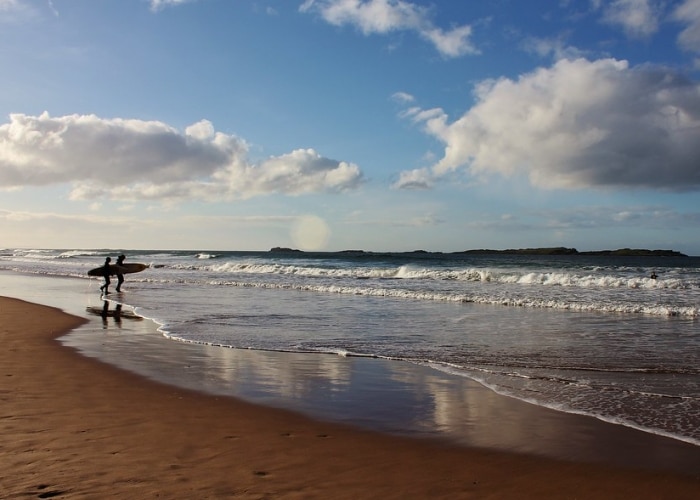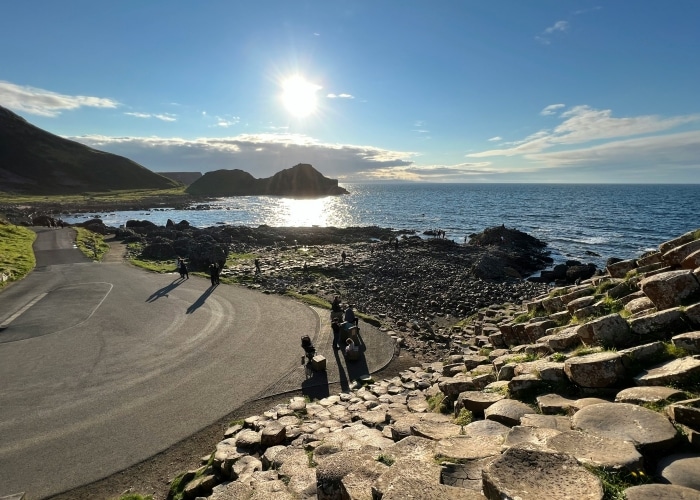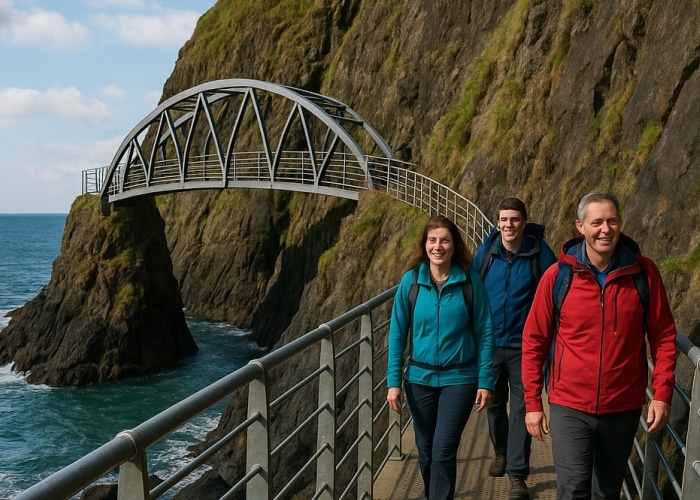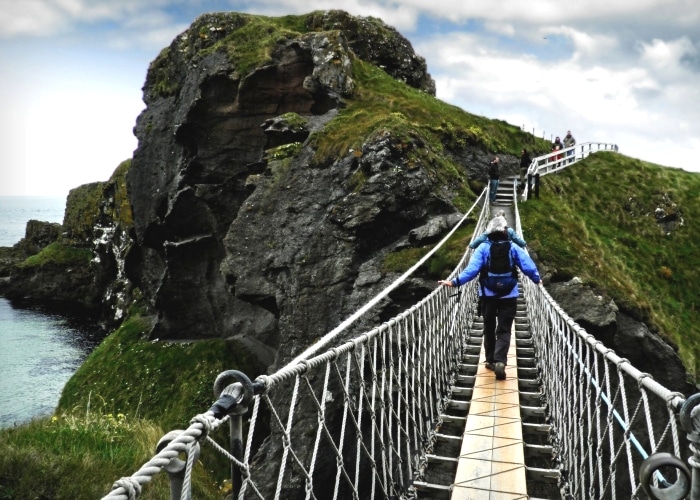Northern Ireland draws you in with its shifting light and the stories its cities tell. In Belfast, shipyards, murals, and pubs packed close to the water set the scene. Traveling here means easing into a flexible rhythm, with fickle weather and welcome surprises.
Along the coast, the Giant’s Causeway lines up its dark columns against the Atlantic, foam crashing below, your steps naturally slowing. The Carrick-a-Rede rope bridge sways just enough to sharpen your senses, the wind clearing your head.
Farther south, the Mourne Mountains are made for gentle hikes—valleys, stone walls, and short grass underfoot. Visiting Northern Ireland often comes down to this: few grand gestures, plenty of moments that stay with you.
Top 5 Guided Tours
Places to Visit
Key Facts

In Belfast, red-brick façades stand alongside modern buildings, and the city keeps its mix of a marked past and present-day energy. The River Lagan flows quietly through its districts, a reminder that maritime history still anchors the city’s identity.
The Titanic Belfast museum tells the story of the ship built here. Its sharp, metallic architecture recalls a ship’s prow, and inside, models and personal accounts immerse you in a time that was both fascinating and tragic.
In the city center, the imposing City Hall rises over the square with its green dome and statues. You sit for a while on the lawn, watch the people passing by, and feel that mix of elegance and simplicity that defines the city.
Just a few streets away, the murals tell another side of history—that of the more recent conflicts. Farther on, near Crumlin Road Gaol, the former prison turned memorial carries a weighty atmosphere, somber but essential to understanding Belfast.

At the northern tip of Northern Ireland, Portrush juts out like a small peninsula battered by waves. Its sandy beaches stretch beneath a sky that’s often shifting, sea spray following every step along the shore.
The old harbor still holds a quiet charm, a few colorful boats swaying gently. Behind it, the cliffs are a reminder that the sea rules here—unpredictable, ever-present.
Not far away, the famous Giant’s Causeway astonishes with its basalt columns reaching into the ocean. The place feels almost unreal, as if shaped by mythical hands, and the image stays with you.
On the road eastward, Dunluce Castle appears at the edge of the cliffs, ruins clinging to the void. From Portrush, shifting between beach walks, rocky outcrops, and historic sites gives the journey a rhythm that feels both calm and intense.

Just beyond the cliffs, the Giant’s Causeway appears as a strange plateau of basalt columns. Formed millions of years ago, they step out into the ocean, as if carving a path toward the horizon.
The Giant’s Causeway feels almost unreal, with its perfectly shaped stones and natural steps leading down to the sea. You pause often, touch the rock, and wonder how nature could have created such a precise pattern.
The Causeway Coastal Route links these wild landscapes from Belfast to Derry-Londonderry. Along the way, villages like Ballintoy and the ruins of Dunluce Castle add even more striking images to the journey.

On the east coast, the Gobbins Cliff Path clings to the cliffs with its walkways and metal staircases. Below, the ocean crashes against the rocks and the wind fills the air with salty spray.
Walking here means passing through dark tunnels, crossing suspension bridges, and edging along narrow ledges. The impression is powerful—you move slowly, between the sound of the waves and the cries of seabirds.
Continuing along the road, Carrickfergus Castle still towers over the harbor as it has for centuries. Farther on, Larne faces the sea, a departure point for crossings to Scotland.
The Causeway Coastal Route then leads into wilder scenery—sheer cliffs, fishing villages, and windswept beaches. After the Gobbins Cliff Path, each stop carries the raw essence of Northern Ireland’s coast.

Not far from Ballintoy, the Carrick-a-Rede rope bridge links the coast to a rocky islet battered by waves. Suspended some thirty meters above the sea, it creaks underfoot and leaves a sharp impression the moment you cross.
The walk is short but memorable, with the ocean rushing below and steep cliffs closing in on the horizon. Once on the other side, the islet feels strangely calm, broken only by the calls of seabirds and the quick wind.
A little farther north, the basalt columns of the Giant’s Causeway reach into the Atlantic. Beyond that, the ruins of Dunluce Castle rise at the cliff’s edge, stone silhouettes defying the centuries.
The capital of Northern Ireland is Belfast.
The official languages are English and Irish.
Northern Ireland covers an area of approximately 14,130 km².
The national holiday is celebrated on March 17, St. Patrick’s Day.
Northern Ireland has a population of approximately 1.9 million inhabitants.
The official currency is the British Pound Sterling (£).
Northern Ireland is in the GMT (Greenwich Mean Time) time zone, UTC+0.
The climate is oceanic, with cool summers and mild winters.
The international dialing code for Northern Ireland is +44.
The electrical voltage is 230 V with type G plugs.